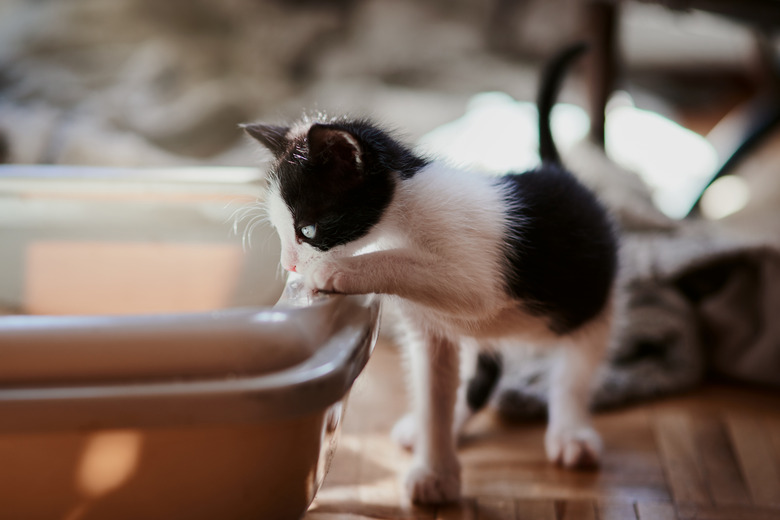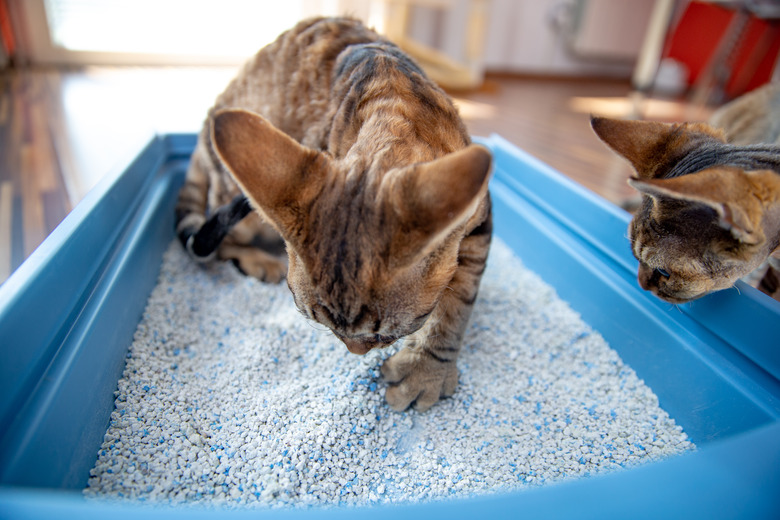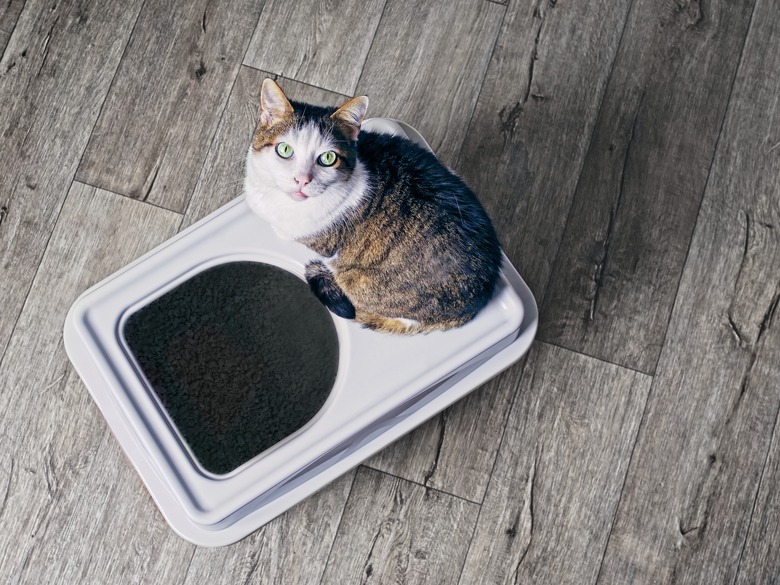How To Clean Up Cat Poop
Cleaning up after your cat may not always be pleasant, but it is a normal and unavoidable part of pet ownership. If you want to avoid unpleasant odors in your home, make a habit out of keeping your cat's environment clean by picking up all his poop on a regular basis.
Cleaning the litter box
Cleaning the litter box
A clean litter box generally is considered to be more pleasant for both you and your cat than one that is full of feces. Regular litter box cleaning can help cut down on odors in your home. Before you start cleaning the litter box, you should put on a pair of rubber cleaning gloves and a breathing mask to protect you from potential illnesses that can be transmitted through feline feces.
To clean your cat's litter box:
- Use a litter scoop to remove feces from the litter box every day.
- If you use clumping litter, scoop out urine clumps daily.
- Once a week, you should dump all the old litter out into a trash bag.
- Use the litter scoop to scrape away any litter or feces that is stuck to the litter box.
- Throw the old litter away.
- Wash the litter box thoroughly using a mild disinfectant soap and water.
- Dry the litter box with a towel and refill it with clean litter.
Note that some cats may not appreciate the odor left behind if you choose to clean your litter box with a strongly scented cleanser. In some cases, strong odors coming from the litter box may prompt the cat to eliminate outside the litter box.
Picking up cat poop
Picking up cat poop
If your cat hasn't been using the litter box, cleaning up the poop can require a little more effort. Put on your rubber cleaning gloves and your mask, use a paper towel to pick up the cat poop, and deposit it into the trash can. Rinse the area with cool plain water and blot it dry. When the area is relatively clean, apply an enzyme-based product designed to remove pet odors. Some of these products may have a stain-lifting property to them.
The best enzyme cleaner for cat urine should also remove stains and odor from cat poop. Be sure to follow the specific usage directions that are given on your cleaning products. The directions will tell you how much cleaner to apply and how long to leave it on the area before blotting it back up.
It is easiest to clean cat feces off of hard surfaces, but you can get carpet and upholstery clean as well with a bit more scrubbing. If the enzyme cleaner doesn't completely lift the stain, you can try applying some stain remover.
Cleaning up messy accidents
Cleaning up messy accidents
It's never fun to clean up your cat's diarrhea, but it can't always be avoided. If your cat has left behind an especially messy mess, you should don your gloves and do your best to pick as much of it up as possible with paper towels. If the mess is more liquid than solid, you may be able to absorb some of it with paper towels.
Once you have removed the feces, rinse the area thoroughly with cool, clean water and apply an enzyme cleaner. If you don't have an enzyme cleaner on hand, you can use a 50/50 mix of white vinegar and water to help remove the stain and the odor.
If you are using a commercial enzyme cleaner, you should follow the specific instructions given on the packaging of that product. If you are using a homemade vinegar mixture, saturate the area with the mixture and then use a paper towel to blot up the fluid.
Proper disposal of cat poop
Proper disposal of cat poop
Note, make sure to dispose of the used kitty litter and cat feces in an outside trash can rather than keeping the used litter inside your home. Cat feces can contain parasites and spread diseases such as toxoplasmosis, so you don't want it hanging around inside your home. Keep your cleaning supplies, such as your litter scoop and rubber cleaning gloves, in an area where they will not come into contact with other household items. It is also a good idea to make a habit out of disinfecting these items once you are done cleaning the litter box every week.


